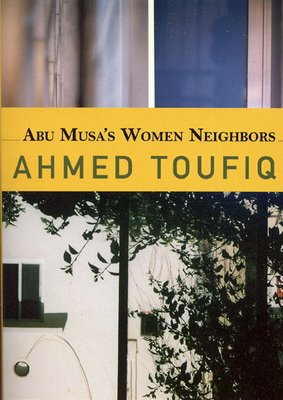The novel, which is already available in the US libraries, will be included soon in the syllabi of some American universities which deal with Arab literature.
The translator,Roger Allen, is a professor of Arabic and Comparative Literature at the University of Pennsylvania and is the author of an Introduction to Arabic Literature (Cambridge University Press, 2000) and The Arabic Novel (Syracuse University Press, 1994).
The book's editor, Fattal Simone, told the press that she worked for two years on the book's translation before it became public.

SYNOPSIS
The 336-page novel tells the story of fourteenth-century Morocco, Shamah works as a servant in the house of Chief Judge Ibn al-Hafid. She is a favorite of the judge's senior wife, Al-Tahirah, who takes the beautiful young woman under her wing.
Thus, Shamah becomes quite accomplished in many things, such as household management, literary and legal matters, and politesse. Those skills, along with her physical beauty, garner her a surprise marriage proposal from Supreme Judge Abu Salim al Jawra'i.
The wedding is arranged posthaste, and before she knows what hit her, the former servant girl is herself ordering servants around in a fine home, surrounded by beautiful things. Conditions of her life change rapidly, and before very long, Shamah, widowed by al-Jawra-i, falls in love with the handsome Andalusian mosaic craftsman 'Ali Sancho.
They are married and move into the city's Oil Hostelry, where Shamah feels an inexplicable bond with their neighbor, the reclusive mystic Abu Musa. It is there that corruptive power, insatiable greed, and religion clash with mysticism in Toufiq's fascinating novel
Stefania Pandolfo, University of California, Berkeley has this to say: Abu Musa's Women Neighbors is an unforgettable book. Just as Abu Musa, its silent protagonist, steps out of the story in the last paragraph only to live on, in the physical site of his burial as in the spiritual life of the city, Toufiq's moving text is animated by the echo of lives and events that live on, as if narrated from the perspective of another world. Sidi Musa's sanctuary stands today overlooking the ocean, a site of healing in the midst of a poor urban sprawl; the retelling of this 14th Century tale spills out into the present, summons us.
Ahmed Toufiq's first literary work (followed by three more, in Arabic), Abu Musa's Women Neighbors reinvents the genre of hagiographic and mystical tales in the contemporary form of an Arabic novel. At the threshold of history and fiction (the author is also a historian), it pushes the limits of both, towards an artistic creation which is at once a vivid restitution of life, and a journey into the intricacies of the human soul, the passions and abuses of power and government, the enigma of destiny.
As we follow the vicissitudes of Shamah, her unfolding life and fate within the fate of the Moroccan city of Salé, its people and rulers, its fortunes and ruin, its losses, we encounter the inspiration, the tones, and the style of traditional storytelling, a poetic, religious and historical tradition that eludes assimilation into Euro-American terms.
Yet, unlike other contemporary reinvestments of vernacular and mystical themes in Maghribi literature, this text is not addressed to a European or a nostalgic gaze. Ahmed Toufiq writes for his fellow citizens, his "neighbors". And yet his way of telling the story, and his exploration of the turns of history and the meanders of the human soul, make this work accessible and involving for an international public. Thanks to this artful translation, American readers have now access to this passionate tale, a beautiful invitation to Arabic literature and Islamic culture.
—
The book's author was born in 1943 in the High Atlas near the city of Marrakech. He worked as a professor of History in the Faculty of Letters and Human Sciences in Rabat (1970 - 1989). He presented his PhD in 1979 on the subject of Social History in the Moroccan Rural Areas in the 19th Century.
He was later appointed director of the Institute of African Studies in the Mohammed V University. In 1995 he became director of the National Library.
Ahmed Toufiq received the Moroccan Book Prize in 1998 for his novel “Shajarat Hinna' Wa Qamar” (A Tree of Henna and a Moon)
Tags: Morocco Fes, Maghreb news

No comments:
Post a Comment